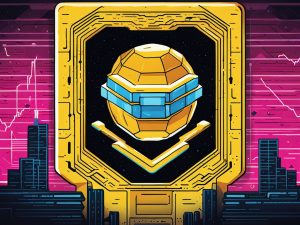Mastercard Collaborates with RBA and DFCRC in CBDC Pilot Program
Mastercard recently participated in a pilot program with the Reserve Bank of Australia (RBA) and Digital Fiat Currency Research Centre (DFCRC) to explore the potential of Central Bank Digital Currencies (CBDCs) in Australia. The goal was to enable secure Web3 commerce through interoperable CBDCs.
Innovative Mastercard Technology
As part of the pilot project, Mastercard developed a technology that allows CBDCs to be securely tokenized or “wrapped” on different blockchains. This innovation provides consumers with a simple and safe way to conduct transactions across multiple blockchains.
Mastercard’s solution includes strict controls to ensure that the pilot CBDC can only be accessed, utilized, and redeemed by authorized parties who have undergone proper identity verification and risk assessment conducted by licensed service providers.
Richard Wormald, Division President, Australasia at Mastercard, expressed enthusiasm about the technology’s potential to drive consumer choice and collaboration between public and private networks in the digital currency space.
Live Demo
A live demonstration showcased how the solution enables a holder of a pilot CBDC to purchase an NFT listed on the Ethereum public blockchain. The process involved “locking” the required amount of a pilot CBDC on the RBA’s platform and minting an equal amount of wrapped pilot CBDC tokens on Ethereum.
Prior to conducting the test transaction, approval was necessary for the Ethereum wallets of both the buyer and seller, as well as the NFT marketplace smart contract within the platform. This demonstrates the platform’s capability to enforce controls even on public blockchains.
The pilot utilized Mastercard’s Multi-Token Network, a blockchain technology designed to enhance the efficiency of payment and commerce applications.
A Powerful Use Case
Zack Burks, CEO and Founder of Mintable, another participant in the pilot, highlighted the potential of NFTs in the CBDC context. He stated that linking digital currencies and NFTs could combat fraud, improve documentation and records, and unlock new possibilities for commerce.
Burks also emphasized the various use cases for NFTs, including new media, gamification, digital identities, loyalty programs, ticketing, authentication, certification, and more.
Hot Take: Mastercard’s Collaboration in CBDC Pilot Program Showcases Potential for Interoperability
Mastercard’s collaboration with the Reserve Bank of Australia (RBA) and Digital Fiat Currency Research Centre (DFCRC) in a CBDC pilot program highlights the potential for interoperable Central Bank Digital Currencies (CBDCs). By developing innovative technology that enables secure tokenization of CBDCs on different blockchains, Mastercard is paving the way for consumers to conduct transactions seamlessly across multiple platforms. The live demonstration further demonstrated how this solution can facilitate purchases of NFTs on public blockchains while enforcing necessary controls. The partnership between Mastercard and other participants showcases the power of collaboration in exploring new possibilities in the digital currency space. With NFTs already being utilized in various industries, this pilot program opens up opportunities to leverage their potential within CBDC ecosystems.





 By
By

 By
By

 By
By